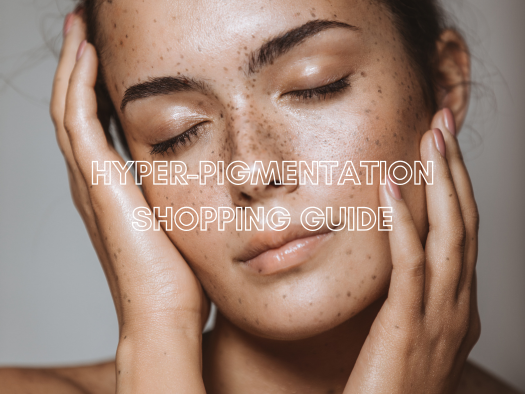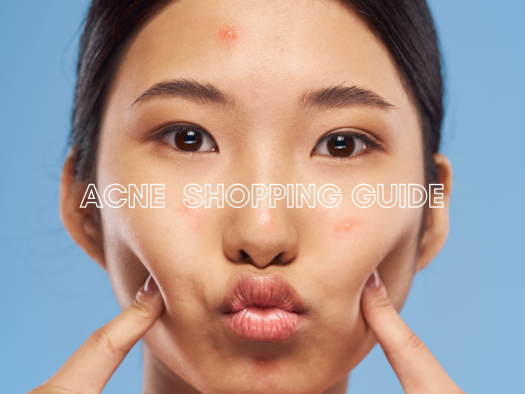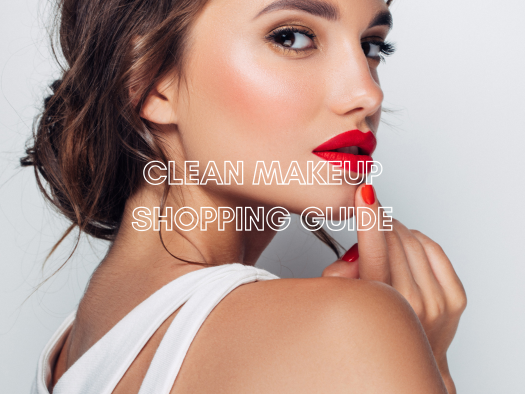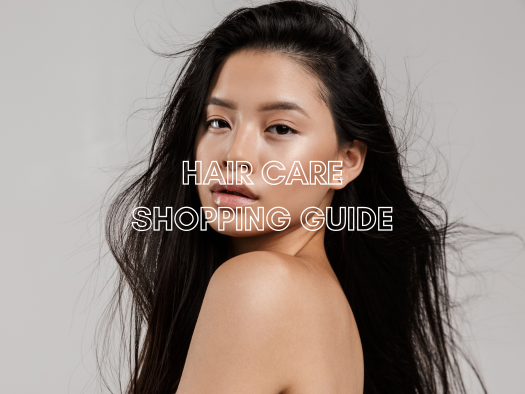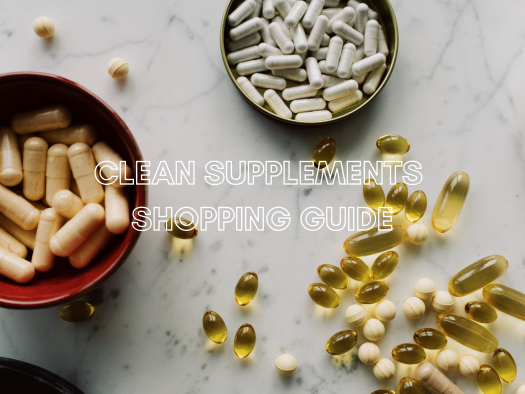sweeteners GUIDE
When we think about aging, most of us look to skincare or supplements. But what if one of the most powerful influences on your skin’s youth and your body’s longevity is sitting quietly in your morning coffee, your smoothie, or your so-called “healthy” snack?

SWEETENERS, SKIN, AND THE SILENT IMPACT ON AGING!
When we think about aging, most of us look to skincare or supplements. But what if one of the most powerful influences on your skin’s youth and your body’s longevity is sitting quietly in your morning coffee, your smoothie, or your so-called “healthy” snack?
Sweeteners—whether natural, synthetic, or somewhere in between—have a direct impact on the processes that drive visible aging, from glycation that stiffens collagen, to microbiome disruption that inflames the gut and skin, to blood sugar spikes that fuel hormonal imbalance and oxidative stress.
At The Beauty Doctrine, we approach beauty functionally. That means looking at every choice through the lens of how it supports or disrupts the body’s natural healing intelligence. And sweeteners are one of the most overlooked yet powerful variables.
This guide will uncover:
- How different sweeteners affect glycation (and why that matters for wrinkles and sagging),
- Their impact on the gut-skin axis,
- How they influence metabolic health, inflammation, and oxidative stress,
- And ultimately, which sweeteners support real beauty and longevity—and which accelerate aging from the inside out.
Let’s rethink sweet. Because beauty isn’t just what you put on your skin—it’s everything you feed it, too.
How Sweeteners Affect Skin, Gut, and Longevity
Before we can rank sweeteners, we need to understand how they interact with the systems that influence how we age—especially our collagen matrix, gut microbiome, and metabolic balance
1. Glycation: The Sugar-Collagen Connection
Every time your blood sugar spikes—whether from a candy bar or a fruit juice smoothie—sugar molecules bind to proteins like collagen and elastin. This process, called glycation, creates harmful compounds known as Advanced Glycation End Products (AGEs).
AGEs make collagen fibers stiff, fragmented, and disorganized. The result?
- Fine lines and wrinkles
- Loss of elasticity
- Dull, sallow skin tone
- Slower wound healing
Think of glycation as internal “caramelization”—it’s cooking your skin from the inside out. The more you spike blood sugar, the faster this damage occurs.
2. The Gut-Skin Axis
Your gut microbiome is home to trillions of bacteria that regulate everything from digestion to hormone production and immune response. Certain sweeteners—especially synthetic or processed ones—can:
- Feed pathogenic bacteria and yeasts (like Candida)
- Disrupt microbial diversity
- Contribute to leaky gut, which leads to systemic inflammation
This directly affects the skin by triggering:
- Acne
- Rosacea
- Eczema
- Increased skin sensitivity and redness
A thriving gut equals clearer, calmer, more resilient skin.
3. Blood Sugar & Insulin Spikes
Excessive or poor-quality sweeteners spike blood glucose and insulin, which does more than age your face. It:
- Promotes fat storage, especially visceral fat
- Disrupts hormonal balance (especially estrogen and androgens)
- Increases cortisol (your stress hormone)
- Triggers inflammation throughout the body
All of these contribute to:
- Puffy skin
- Hormonal breakouts
- Loss of facial tone and firmness
- Faster aging of every organ system
4. Oxidative Stress and Mitochondrial Dysfunction
High-sugar diets increase the production of free radicals, which overwhelm your antioxidant defenses. Over time, this oxidative stress impairs your mitochondria—the energy factories in your cells that are critical for maintaining youthful skin, mental clarity, and energy.
Mitochondrial dysfunction has been directly linked to:
- Accelerated aging
- Lower collagen synthesis
- Weakened barrier function in the skin
- Reduced skin regeneration
Sweeteners that spike blood sugar, feed inflammation, or interfere with insulin regulation are essentially shutting down your body’s cellular repair crew.
Sweeteners Ranked: From Skin-Supportive to Skin-Sabotaging
Not all sweeteners are created equal. Some stabilize blood sugar, support your microbiome, and reduce inflammation. Others do the opposite—fueling glycation, bloating, breakouts, and faster aging.
Below is a Functional Beauty ranking of common sweeteners from best to worst—based on their impact on skin health, gut function, metabolic stability, and longevity.

1. Allulose
What it is: A rare sugar found naturally in figs and raisins.
Why it’s the best:
- Does not raise blood sugar or insulin levels.
- Lowers post-meal glucose spikes.
- May improve fat metabolism and insulin sensitivity.
- Doesn't feed bad bacteria or yeast.
Skin benefit: Prevents glycation, reduces inflammation, supports clear and firm skin.
Use: Great in baking, drinks, and desserts.
Wholesome Sweeteners, Allulose Sweetener
Shop
2. Pure Stevia (Whole Leaf Extract)
What it is: A plant-derived sweetener with zero calories.
Why it’s great:
- Zero glycemic impact.
- Natural antimicrobial properties.
- Supports oral and gut health.
Caution: Most commercial blends like Truvia are cut with erythritol or dextrose—avoid these.
Skin benefit: Doesn’t spike insulin, supports healthy microbiome, reduces glycation.
Use: Ideal in drinks, smoothies, and cold recipes.
Durelife 100% Pure Stevia Extract Sweetener
Shop
3. Raw Local Honey (in moderation)
What it is: Natural sweetener produced by bees, rich in enzymes and phytonutrients.
Why it’s beneficial:
- Contains antioxidants, enzymes, and prebiotics.
- Can support immune health and gut microbiome.
Caution: Raises blood sugar—use sparingly.
Skin benefit: When used occasionally, can support skin immunity and reduce inflammation.
Use: Drizzle on chia pudding, smoothies, or herbal tea.
Wholesome Sweeteners Organic Honey
Shop
4. Monk Fruit (Luo Han Guo)
What it is: A zero-calorie sweetener from a Chinese melon.
Why it’s mixed:
- Pure monk fruit is glycemic-neutral and gut-friendly.
- But most products contain erythritol or other additives.
Skin impact: Pure form is skin-safe; blends can disrupt microbiome.
Use: Read labels carefully—look for 100% monk fruit extract.
Durelife Organic 100% Pure Monk Fruit Sweetener
Shop5. Maple Syrup, Coconut Sugar, and Date Sugar
What they are: Natural sweeteners with small amounts of minerals.
Pros:
- Whole-food origin.
- Contain zinc, magnesium, and antioxidants.
Cons: - Still spike glucose and insulin.
- High in glucose and/or fructose.
Skin impact: Promote glycation and insulin resistance if overused.
Use: Occasional use only, best paired with fiber or fat.
6. Sugar Alcohols (Erythritol, Xylitol, Maltitol)
What they are: Low-calorie chemical sweeteners often found in keto and “sugar-free” products.
Concerns:
- Can cause bloating, gas, and disrupt gut flora.
- Some studies suggest erythritol may affect cardiovascular health.
Skin impact: If microbiome is disrupted, it can lead to acne, rosacea, and systemic inflammation.Use: Avoid if sensitive or prone to digestive issues.
🚫 7. Agave Syrup, White Sugar, High Fructose Corn Syrup (HFCS)
What they are: Highly refined and metabolically damaging sweeteners.
Why they’re harmful:
- Agave is 90% fructose—more damaging to the liver than table sugar.
- HFCS is linked to metabolic disease, insulin resistance, and chronic inflammation.
-
White sugar rapidly spikes blood sugar and fuels glycation.
Skin impact: Accelerates wrinkles, collagen breakdown, and chronic skin conditions.
Use: Eliminate entirely.
| Sweetener | Glycemic Impact | Gut Microbiome Impact | Skin Aging Risk | Best Use Recommendation |
|---|---|---|---|---|
| Allulose | None | Neutral/Positive | Low | Daily use in drinks/desserts |
| Pure Stevia (no blends) | None | Neutral/Positive | Low | Daily use in beverages |
| Raw Local Honey | Moderate | Supportive (prebiotic) | Moderate (in excess) | Occasional – in tea or raw snacks |
| Maple Syrup | High | Mildly disruptive | High | Occasional – paired with fat/fiber |
| Coconut Sugar | High | Mildly disruptive | High | Minimal – only in whole-food form |
| Date Sugar | High | Mildly disruptive | High | Minimal – in small portions |
| Monk Fruit (pure) | None | Neutral | Low | Daily – if pure and unblended |
| Monk Fruit (with erythritol) | Low to None | Disruptive | Moderate | Avoid – read labels carefully |
| Erythritol | Low | Disruptive | Moderate | Avoid – especially if gut sensitive |
| Xylitol | Moderate | Disruptive | Moderate | Avoid – can cause bloating |
| Agave Syrup | High (90% fructose) | Disruptive | Very High | Avoid entirely |
| White Sugar | Very High | Disruptive | Very High | Avoid entirely |
| High Fructose Corn Syrup | Very High | Disruptive | Very High | Avoid entirely |
Final Takeaway
The best sweeteners support your skin from within: they stabilize blood sugar, avoid microbiome disruption, and don’t feed inflammation. If you’re serious about aging well:
- Use allulose or pure stevia as your everyday sweeteners
- Reserve honey or dates for special treats
- Read labels closely to avoid hidden sugar alcohols and synthetic blends
- Cut out all refined and processed sugars—your skin will thank you
HEALTHY DESSERT RECIPES
1. Collagen Coconut Bliss Balls
Benefits: Supports skin elasticity and gut health.
Ingredients:
- 1 cup shredded coconut
- 1 scoop marine collagen peptides (like Holi Mane or Girl & The Sea)
- 2 tbsp coconut oil
- 1 tbsp almond butter
- 2 tsp allulose or raw honey
- 1/2 tsp vanilla extract
- Pinch of sea salt
Instructions: Blend all ingredients. Roll into balls. Chill for 20 minutes.
2. Raw Cacao Avocado Mousse
Benefits: High in antioxidants and healthy fats.
Ingredients:
- 1 ripe avocado
- 2 tbsp raw cacao powder
- 1 tbsp allulose or monk fruit
- 1/2 tsp vanilla
- Pinch of sea salt
- Splash of almond or coconut milk
Instructions: Blend until smooth and creamy. Chill and serve.
3. Frozen Berry Coconut Yogurt Bark
Benefits: Rich in polyphenols, supports gut flora.
Ingredients:
- 1 cup coconut yogurt (unsweetened, clean label)
- 1/2 cup mixed organic berries
- 1 tsp chia seeds
- 1 tbsp unsweetened shredded coconut
Instructions: Spread yogurt on parchment-lined tray, top with berries, coconut, chia. Freeze. Break into pieces
4. Chia Pudding with Cinnamon & Almond Butter
Benefits: High fiber, balances blood sugar.
Ingredients:
- 2 tbsp chia seeds
- 3/4 cup almond milk
- 1/2 tsp Ceylon cinnamon
- 1 tsp allulose or stevia
- 1 tbsp almond butter
Instructions: Mix, let sit for 4 hours or overnight in the fridge
5. Date-Free Sweet Potato Brownies
Benefits: Anti-inflammatory and rich in beta-carotene.
Ingredients:
- 1 cup mashed roasted sweet potato
- 2 tbsp raw cacao
- 2 tbsp almond flour
- 1 tbsp coconut oil
- 2 tbsp allulose
- 1 tsp vanilla
- 1 egg or flax egg
Instructions: Mix. Bake at 350°F for 20–25 min.
6. Apple Nachos with Nut Butter Drizzle
Benefits: High fiber and mineral-rich.
Ingredients:
- 1 sliced organic apple
- 1 tbsp almond or cashew butter
- 1 tsp raw cacao nibs
- Sprinkle of cinnamon
- Drizzle of raw honey or allulose
Instructions: Layer and enjoy.
7. Matcha Coconut Ice Cream (No-Churn)
Benefits: High fiber and mineral-rich.
Ingredients:
- 1 sliced organic apple
- 1 tbsp almond or cashew butter
- 1 tsp raw cacao nibs
- Sprinkle of cinnamon
- Drizzle of raw honey or allulose
Instructions: Layer and enjoy.
8. Hormone-Balancing Maca Cacao Truffles
Benefits: Adaptogenic and energizing.
Ingredients:
- 1/2 cup almond flour
- 2 tbsp raw cacao
- 1 tbsp maca powder
- 2 tbsp coconut oil
- 1 tbsp almond butter
- 1 tbsp allulose or honey
Instructions: Mix, roll into balls, chill.
9. Banana Almond Butter “Ice Cream”
Benefits: Whole food-based, dairy-free treat.
Ingredients:
- 2 frozen bananas
- 1 tbsp almond butter
- 1/2 tsp cinnamon
- Optional: sprinkle of hemp seeds
Instructions: Blend in food processor until creamy.
10. Glow Berry Gelatin Gummies
Benefits: Collagen-rich and gut-soothing.
Ingredients:
- 1 cup organic berries
- 2 tbsp grass-fed gelatin or marine collagen
- 1/4 cup water
- 1 tbsp allulose or honey
Instructions: Blend berries, heat gently with gelatin and water. Pour into molds. Refrigerate until firm.

